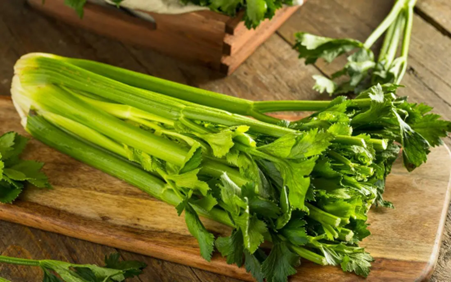It’s a fact of life that our kidneys are a bit underappreciated. We don’t often think about these two hardworking, bean-shaped organs, yet they’re on the job 24/7, filtering waste and toxins from our blood and regulating vital functions.
While there’s no single “miracle food” that can guarantee perfect kidney function, your diet is one of the most powerful tools you have to support these essential organs. When it comes to kidney-friendly foods, one humble vegetable you should add to your plate is celery.
Your kidneys are like a sophisticated filtration system, processing about 150 litres of blood every day to remove waste and excess fluid, and balance electrolytes. A healthy diet and lifestyle are crucial for keeping best kidney function, especially since chronic conditions like high blood pressure, diabetes, and heart disease can lead to kidney damage if left unchecked.
Diet plays a huge role in managing kidney health, particularly for those with existing kidney disease. Proper nutrition can help control blood pressure and blood sugar, which are key to slowing the progression of kidney issues. A balanced diet with the right amounts of protein, potassium, sodium, and other nutrients is essential.
Why Celery is Good for Your Kidneys
Celery is a nutritional powerhouse that’s low in calories and packed with fibre, vitamins, and minerals. It’s often considered a kidney-friendly food that you can enjoy at any stage of kidney disease. Here are five reasons why this crisp veggie is a great choice for your kidneys:
1. It’s a Great Source of Potassium
While it may seem counterintuitive to eat potassium when you have kidney issues, celery has a moderate, kidney-friendly amount of this crucial mineral. Potassium helps keep proper muscle function, regulates your heartbeat, and offsets the harmful effects of sodium on blood pressure. If you’ve been recommended to follow a low-potassium diet, talk to your doctor or a renal dietitian to decide the right amount for you.
2. It’s Low in Sodium
Too much sodium can be hard on your kidneys, leading to high blood pressure, fluid retention, and extra stress on these organs. Naturally low in sodium, celery is a smart choice for anyone looking to reduce their salt intake and support healthy blood pressure.
3. It’s Full of Antioxidants
Celery is loaded with antioxidants like flavonoids and vitamin C. These powerful compounds help fight oxidative stress and inflammation, which can reduce the risk of kidney damage from free radicals. Including celery in your diet is a simple way to give your kidneys some extra protection.
4. It Has Natural Diuretic Properties
Known for its natural diuretic properties, celery can help increase urine production, which aids in flushing out waste and excess fluids from your body. This can be particularly beneficial for those with kidney issues, as it helps reduce fluid retention and eases the burden on your kidneys.
5. It’s Rich in Fibre
Fibre is essential for a healthy digestive system, which in turn helps your kidneys. When your gut works efficiently, it reduces the risk of waste and toxins building up in your bloodstream, which would otherwise put extra strain on your kidneys. The dietary fibre in celery also has prebiotics that feed good gut microbes, helping to boost your immune system and protect against disease.
By including nutrient-rich foods like celery in a balanced, kidney-friendly diet, you can take a proactive step toward supporting these vital organs. What’s your favourite way to eat celery?


